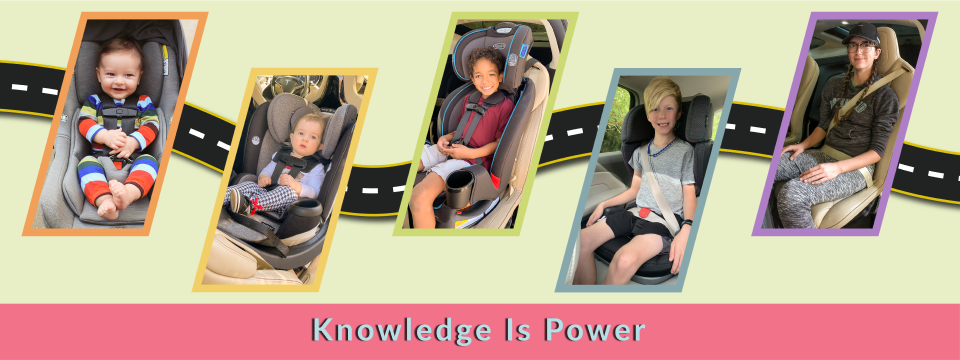BREAKING NEWS
This past August, at Kidz in Motion, the International Child Passenger Safety Conference, Dorel Juvenile Group, parent company of Cosco, Safety 1st, Maxi-Cosi & Disney Baby Car Seats announced some unprecedented new policies, aimed at improving crash protection and keeping bigger kids rear-facing longer in Dorel Convertible & All-in-One car seats. These changes are reportedly being driven by a new 3rd party study that has not been released yet.
These updated Dorel policies include:
A requirement that the child MUST continue to use the Dorel (Cosco, Safety 1st, Disney Baby, Maxi-Cosi) convertible or All-in-One car seat in the rear-facing position until reaching either the rear-facing weight OR height limit before they transition to forward-facing in that seat. In most cases, this will likely mean continuing to ride rear-facing until reaching 40 lbs. OR 40″ tall – although there may be some Dorel products with different RF weight or height limits.
Dorel convertible/all-in-one seats will now have a 30 lbs. minimum for forward-facing to cover the kids who outgrow the seat rear-facing by height before hitting 40 lbs.
All Dorel manuals will be updated by the end of 2023 to include this language.
THIS UPDATE IS RETROACTIVE.
While some child passenger safety advocates will likely celebrate this news, it’s very limiting and will undoubtedly create challenges for both parents and CPS Technicians.
Additionally, there is now also a new requirement that all rear-facing Dorel car seats (rear-facing only seats and convertibles) when possible, MUST be installed in a way that allows them to make light contact with the back of the front seat.
THIS UPDATE IS ALSO RETROACTIVE.
While we understand the potential benefits of having no gap between the back of the RF car seat and the back of the vehicle seat, we can foresee many instances where this requirement might be problematic for owners of Dorel seats, particularly in center seating positions where the RF car seat often “clears” the two front seats without any opportunity for contact.
According to a Dorel representative at Kidz in Motion, in these situations it’s allowable but not ideal if the RF car seat doesn’t touch at least a portion of one of the front seats. In their eyes, it’s preferable if at least one of the front seats (driver or passenger) is making at least partial contact with the RF car seat in the center. This is a “Good, Better, Best” situation in their opinion but they really want some contact if at all possible.
There are a variety of issues that these new policies may present. In no particular order:
- CPS programs that typically use budget-friendly Dorel convertible or all-in-one seats for distribution will likely have to switch to other brands because these new policies are too limiting and will create constant challenges in the field.
- The new RF contact policy may have the unintended consequence of making other occupants in the vehicle less safe by requiring them to place the front seats in less-than-ideal positions for the driver and/or front seat passenger.
- The new RF contact policy may be at odds with information in the vehicle owners manual, which may prohibit any contact with the back of the vehicle front seat.
- Having a RFO (rear-facing-only) portable infant car seat touching the back of the front seat may make it more difficult to detach the carrier from the base since the release mechanism is behind the top of the shell.
- If your vehicle automatically moves your driver seat (and possibly the front passenger seat as well) rearward to exit, and then forward into a pre-programmed “memory” position, this is going to pose challenges.
Let’s be honest, in the majority of vehicles, requiring a RF convertible that is installed in an outboard position to lightly make contact with the back of the vehicle seat directly in front won’t be too hard to accomplish – as long as the vehicle manufacturer doesn’t specifically prohibit contact.
CPSTs are well aware of the space issues we run into constantly. These almost always involve instances where the driver or front seat passenger have less room up front than they would prefer. The popular Cosco Scenera Next may be the exception since it’s known for being one of the most compact convertible seats when rear-facing.
Overall, while the implementation of the new RF contact requirement is likely to be possible in the majority of situations when the car seat is installed outboard, it’s still going to pose many challenges to CPSTs working in the trenches.
However, those challenges are going to pale in comparison to those we are going to face now if we can no longer allow children who are less than 40 lbs. and 40″ tall to use a Dorel convertible/all-in-one in the forward-facing position. That puts CPSTs working in the field in a real $hitty position when we’re standing face to face with a caregiver and child, and we can no longer accept what the CPST curriculum defines as “good” or “better” when it comes to rear-facing/forward-facing.
Finally, for what it’s worth, 40 pound Dorel convertibles like the Cosco Scenera Next and Cosco Onlook are now essentially RFO seats, retroactively, since you can now only use them FF with a child whose height is between 40-43″ tall, who weighs between 30-40 lbs., and whose shoulders are not above the top harness slot.
We will continue to update this article when further information, specifically the white paper regarding the 3rd party study that Dorel commissioned, becomes available.
